Teaching and Learning
Western Michigan University
Kalamazoo MI 49008-5230 USA
(269) 387-4200

Western Michigan University has joined with other colleges and universities in the Mid- American Conference (MAC) to participate in the Academic Leadership Development Program (ALDP).
The mission of the MAC ALDP is to identify, develop, prepare and advance faculty as academic leaders in the Mid-American Conference universities. The program provides an opportunity for WMU faculty to gain valuable knowledge and experience in academic leadership by working closely with select administrators from other colleges and universities in the MAC.
Overview
The goal of this program is to expose faculty who are interested in administration and those who have recently moved into an administrative role as chair or associate dean (within the last three years) to the challenges and rewards of institutional service and to prepare them for potential leadership positions within the academy.
Whether or not a Fellow ultimately chooses to pursue an administrative position in the future, the program will, at a minimum, provide them with a better appreciation for and understanding of how universities operate.
The workshops will address topics such as conflict resolution, budgeting, accreditation and accountability.
Key outcomes of the program include:
- Articulate the complexity of the structure and operations within an institution and across institutions;
- Describe the impact of the external influences on the role of leaders in a higher institution. This should include, but is not limited to, federal/state regulations and mandates, accreditation, and community influence;
- Identify best practices in academic leadership;
- Assess one’s own leadership potential, including strengths and weaknesses, and identify leadership pathways;
- Communicate the importance of inclusive excellence.
Up to four outstanding individuals are selected each year to serve as Western Michigan ALDP Fellows under the mentorship of the Office of Faculty Development. The program has three basic, required elements:
- a university-level development program led by the associate vice president for the selected WMU fellows,
- participation in multiple MAC-wide workshops for all program participants that will include up to two in-person meetings on other MAC campuses (as conditions allow), with the remainder to be held virtually; and
- completion of a portfolio that documents and allows for reflection of the experience.
Academic Deans and the Executive Board of the Faculty Senate are invited to nominate up to two individuals for an ADLP Fellowship. To be eligible, a nominee must be a tenured faculty member. Master Faculty Specialists are eligible. Nominees are expected to possess strong leadership capacities as well as an outstanding record of achievement in their current and past positions, along with an expressed interest in administrative service.
The nomination must take the form of a letter no more than two pages in length that describes the leadership qualities of the nominee and elaborates upon their contributions to the academic department, unit or division. Each nomination should be accompanied by an application completed by the nominee.
Deans and the Executive Board of the Faculty Senate are responsible for getting the following application material to the candidates they select. The nominating letter and application should be submitted electronically:
The application deadline is May 16, 2026, and decisions will be announced shortly after.
Throughout the year, the Fellow will have the opportunity to meet with the other Western Michigan Fellows and the Office of Faculty Development to discuss relevant professional literature and to design a leadership portfolio to be completed during the spring semester. The portfolio will include several leadership artifacts, including leadership philosophy, CV and leadership goals. The goal of the portfolio is to assist the Fellow to reflect and gain insight on their future leadership goals. The MAC-ALDP Liaisons (who are upper level administrators in other MAC institutions) will provide input on the Fellows’ portfolios.
In addition, all Fellows are required to attend the MAC ALDP Workshops scheduled during the year. These workshops are hosted by MAC institutions and will follow a format designed to maximize interaction among the Fellows. Case studies, group discussions and other group activities will be incorporated into the workshops. All expenses for the workshops are covered by either the MAC or WMU.
Questions regarding the Academic Leadership Development Program should be directed to Ramona Lewis, director of the Office for Faculty Development.
MAC ALDP Fellows
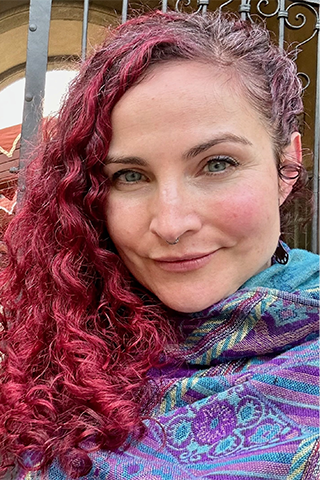
Lisa Renée Coons’ preferred labels oscillate from composer to sound artist, from mentor to collaborator. Her recent creative endeavors cross disciplines, media, and vocabularies – but all are based in collaboration and themes of environmentalism, power dynamics, and narrative. She has been fortunate to work with richly-diverse artists, including the International Contemporary Ensemble, Spectral Quartet, Mark DeChiazza, The American Composers Orchestra, Ensemble Dal Niente, Between Feathers, Iktus Percussion Quartet, Dither Electric Guitar Quartet, Illinois Modern Ensemble, Eric KM Clark, Hannah Addario-Berry, the NODES Project, Violin Futura, the Machine Project for the Hammer Museum of Los Angeles and the California E.A.R. Unit. Her recent work, “Five Essays on Caramoor,” was installed on the Caramoor Festival Grounds in the summer of 2025 as part of their permanent collection. She has held fellowships from the Hartt School, MacDowell Colony, Yaddo, and the renowned Other Minds Festival.
Alongside her creative research, teaching and service are essential aspects of Dr. Coons’ professional life, as she strives to constantly learn and evolve alongside her artist-citizen students. As an associate professor of music composition and technology at Western Michigan University, she mentors students at various levels of their artistic development, with widely varying voices and goals, through teaching, collaboration, funding applications, community building, and opportunity creation. She has worked with regional outreach programs like the Grand Rapids Symphony Orchestra Mosaic Scholars program, SEMINAR summer camp for high schoolers, and Portage Public Schools’ Orchestra Program. She has grown through years of service to both Western Michigan University and diverse professional organizations including the Society of Electro-Acoustic Music in the United States, the Society of Composers, Inc., and New Interfaces for Musical Expression, among many others. Dr. Coons was a founding member of the San Francisco-based collective known simply as The Collected. For more information visit lisarcoons.com.
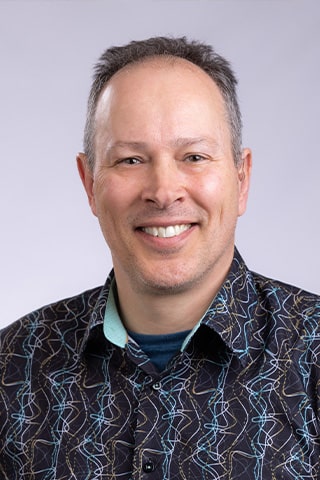
Chair, Professor, University Libraries
Edward Eckel is chair of the University Libraries faculty at Western Michigan University (WMU). From 2006 to 2025, he served as the library liaison to the College of Engineering and Applied Sciences and the College of Aviation at WMU. He has a B.S. degree in biology from Cornell University and a Master’s in Library and Information Science (2001) from Drexel University in Philadelphia. Between professional positions and staff positions, he has 30 years of experience in academic libraries.
His research articles have been published in Science & Technology Libraries, Science and Engineering Ethics, Issues in Science and Technology Librarianship, College and Undergraduate Libraries, Reference and User Services Quarterly, and Internet Reference Services Quarterly.
His research interests have focused on the following areas: plagiarism in engineering writing, undergraduate and graduate student research and citation practices, and the use of social media in libraries. He was the editor-in-chief of the peer-reviewed journal Issues in Science and Technology Librarianship from 2021-2025.

Professor, Mechanical and Aerospace Engineering
Dr. Kristina Lemmer is a full professor at Western Michigan University in the Mechanical and Aerospace Engineering Department. She is a Presidential Innovation Professor and a Distinguished Faculty Scholar. She participated in the WMU Dream Fellowship to learn about academic leadership in 2021. Her area of research focuses on experimental plasma engineering, especially related to spacecraft propulsion. She serves as the chair of the American Institute of Aeronautics and Astronautics Electric Propulsion Technical Committee and on the board of directors of the Electric Rocket Propulsion Society. Dr. Lemmer has received many significant federal grants for her research, including the Young Investigator Program grant from the Air Force Office of Scientific Research (AFOSR). In addition to continued funding from AFOSR, she has received funding from NASA, NSF, USSF, and MSGC. She has advised 4 Ph.D. graduates and numerous Master’s graduates. Dr. Lemmer also serves as the faculty mentor for the Western Aerospace Launch Initiative (WALI), a student organization dedicated to designing, building, and testing spacecraft. WALI delivered its first payload for launch integration with a spacecraft bus in July 2025, and the spacecraft is manifested to be launched in February 2026.
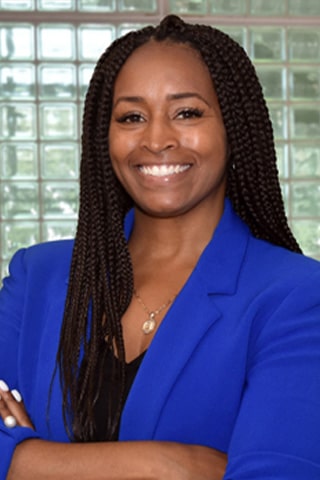
Director, Lewis Walker Institute for Race & Ethnic Relations
Dr. Bianca Nightengale-Lee serves as the Director of the Lewis Walker Institute for Race & Ethnic Relations, as well as interim chair of the Teaching Learning and Educational Studies Department, at Western Michigan University. Her research explores the confluence of race, literacy, and culture, as it relates to socially conscious and humanizing curricular development. With articles published in Multicultural Perspectives, The Journal of Literacy Research, the Oxford Encyclopedia of Research, as well as the Bloomsbury Handbook of Hip Hop Pedagogy, her work examines Afro-Indigenous pedagogical frames that characterize the preservation of liberation, identity, and self-expression for Black and Brown students. Her authentic and humanizing approach has garnered awards from the Journal of Literacy Innovation, The National Council of Teachers of English, The American Association of Colleges of Teacher Education, and the Literacy Research Association. As a critically engaged community scholar, her work nests within academic, school, and community based settings, where she works alongside teachers, community stakeholders and youth to develop pedagogy relative to the lives, and literacies of our most vulnerable student populations.
WMU MAC ALDP Alumni Highlights
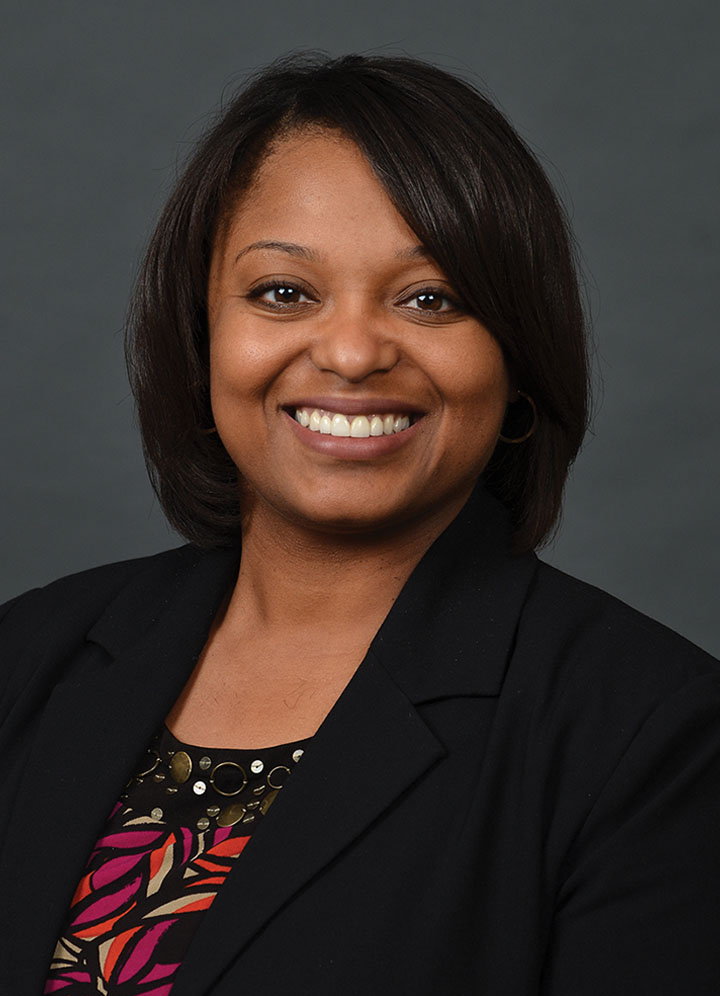
MAC Fellow 2022-2023
Associate Professor, Counselor Education & Counseling Psychology
"Since my participation in the MAC ALDP in 2022-23, I have assumed a leadership position at Western Michigan University. I am currently serving as the Chair of the Curriculum Committee for the College of Education and Human Development (CEHD). Within this role, I preside over all curriculum committee meetings, facilitate the voting process for curriculum changes within the college, review curriculum proposals, communicate with CEHD faculty about curriculum proposals, Work with faculty curriculum committee members, the University Curriculum Manager, the CEHD Curriculum Manager, and the administrative assistant to the committee. I also input curriculum decisions within Curriculum, a database management system for curriculum proposals, on behalf of the committee, and serve as a resource to CEHD faculty and the college regarding the curriculum change processes."
It was such an honor to have been selected as a MAC ALDP Fellow in 2022-23. I obtained so much information about leadership in the program, and I had the chance to meet other fellows at institutions within the Mid America Conference (MAC). However, the most important thing I learned from the program was understanding what leadership means to me. After the program, I understood that leadership would not look the same for everyone. Leadership is not only an individual choice or decision, but it can look different based on someone’s qualities, skills, values, beliefs, and experiences. This knowledge was so helpful to me because I thought all leaders had to act or think the same way. Another positive outcome I experienced after completing the program was obtaining a leadership position. I honestly did not expect to put all the leadership training I received from the program into practice so soon. Two years after completing the ALDP, I assumed a leadership role as the College of Education and Human Development Curriculum Committee Chair. I attribute this success to the program and the training I received.
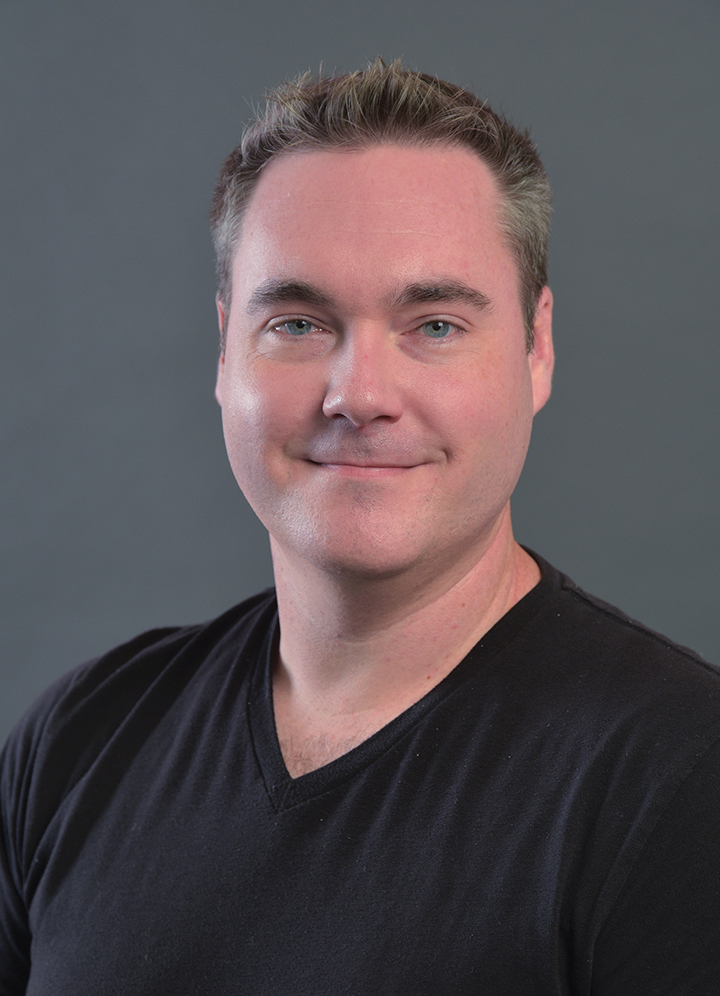
MAC Fellow, 2021-2022
Associate Professor, Educational Leadership in Global and Higher Education; Faculty Fellow for Global Education, Diether H. Haenicke Institute for Global Education; Faculty Fellow for International Initiatives, College of Education and Human Development; Grievance Officer, Western Michigan University AAUP/AFT Local 6763
Dr. Archer earned his PhD in educational leadership and policy studies as well as his MS in marriage and family therapy and a graduate certificate in international studies from Oklahoma State University. In addition, Dr. Archer earned his BS in human development and family studies from the University of Alabama. Prior to serving for 12 years in his current role at WMU, he was also a full-time faculty member at Northern Illinois University and Valdosta State University (Georgia). His research and teaching interests include issues of diversity and inclusion in postsecondary education with an emphasis on international education and the internationalization of higher education both in the U.S. and abroad. He was also previously awarded a prestigious Fulbright U.S. Scholar Award to Albania (2022-2023) for his work related to supporting internationalization strategies within the Albania public higher education system. In addition to his faculty role, he also provides administrative service to his college and the larger university as a faculty fellow promoting comprehensive internationalization at WMU through international partnership development, internationalization of the curriculum, reviewing health, safety, and risk management policies for study abroad programs, and providing faculty development on issues of international teaching, research, and competitive external awards. Finally, Dr. Archer also serves the WMU faculty as a member of the WMU-AAUP leadership in his role as Grievance Officer.
My MAC ALDP experience (2021-2022) was a great opportunity to connect with and learn from senior leaders and other colleagues at my campus as well as other senior leaders at institutions across the MAC conference. In particularly, learning from sessions lead by MAC Provosts, Senior Vice Presidents, and Presidents on topics including university budgeting, athletics, managing relationships between administration and faculty were very inspiring to me and helped me to consider my own academic leadership style and values as an aspiring higher education leader. The lessons I learned and connections I made with other MAC leaders and faculty through my participation in the program were extremely beneficial for the current work in am doing in various units across the WMU campus. In fact, I regularly interact with one of my fellow cohort members in my role as Grievance Officer as he is now the Director of Academic Labor Relations at our institution. Developing these early connections have helped us to more effectively work together for the benefit of our administration and faculty. Finally, the ability to focus on issues in the internationalization of higher education as part of my individual project in the program, expanded my knowledge and expertise of this topic and allowed me to go on to make significant impacts both for my institution and for public higher education in Albania.
Past MAC ALDP Fellows
- Dr. Lisa Coons, associate professor of composition and technology in the Irving S. Gilmore School of Music
- Edward Eckel, chair and professor in University Libraries
- Dr. Kristina Lemmer, professor in the department of Mechanical and Aerospace Engineering
- Dr. Bianca Nightengale-Lee, director of the Lewis Walker Institute for Race and Ethnic Relations and associate professor in the department of Teaching, Learning & Educational Studies
- Amy Heath, Chair and Assistant Professor, Department of Physical Therapy
- Regina Garza Mitchell, Professor, Department of Educational Leadership, Research and Technology
- German Zarate-Sandez, Associate Professor and Director of the introductory Spanish program, Department of Spanish
This academic year did not include any WMU Faculty Fellow involvement.
- Cynthia Klekar-Cunningham, Director, School of Communication
- Kelley O'Reilly, Professor and Chair, Department of Marketing
- Glinda Rawls, Associate Professor, Counselor Education and Counseling Psychology
- Lori Sims, Professor of Piano, Irving S. Gilmore School of Music
- Carla R. Adkison-Johnson, Professor, Department of Counselor Education and Counseling Psychology
- Eric Archer, Associate Professor, Department of Educational Leadership, Research and Technology
- Jennifer Harrison, Professor, College of Health and Human Services
- Matthew S. Mingus, Professor, School of Public Affairs and Administration
- Onur Arugaslan, Professor, Department of Finance and Commercial Law
- Paul Gallagher, Associate Dean for Resources and Digital Strategies, University Libraries
- Decker Hains, Chair and Master Faculty Specialist, Department of Management
- Jennifer Hudson, Associate Professor, Mechanical and Aerospace Engineering
- Paul Ciccantell, Professor, Department of Sociology
- Laura DeThorne, Professor and Chair, Department of Speech, Language and Hearing Sciences
- Susan Piazza, Professor, Department of Special Education and Literacy Studies
- Kristina Wirtz, Professor, Department of Spanish
- Claudia Fajardo-Hansford, Professor, Mechanical and Aerospace Engineering
- Mary O'Kelly, Professor and Associate Dean for Education and User Services, University Libraries
- Kieran Fogerty, Professor and Director, Interdisciplinary Health Sciences Ph.D.
- Maarten Vonhof, Professor of Biological Sciences, Department of Biological Sciences
- Devrim Yaman, Associate Dean of Undergraduate Programs, Office of the Dean


